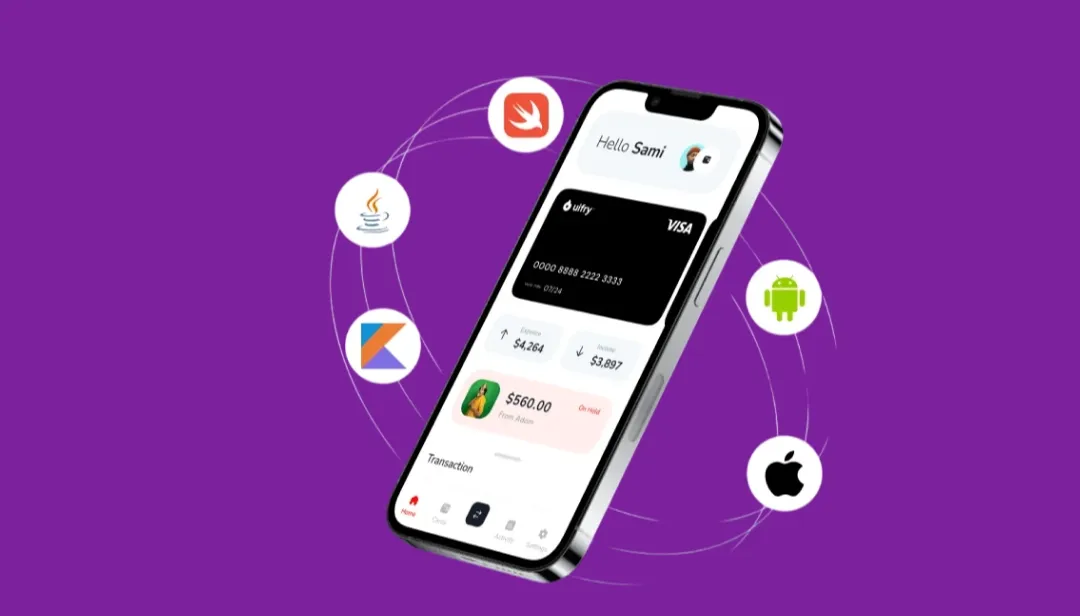Top Programming Languages Shaping The Tech World In 2025

As we enter 2025 and beyond, companies are fortunate enough to develop applications to ensure they select the correct programming languages for app development. IT specialists know that the new techs & frameworks are updated daily.
Compared to traditional technologies, new techs & frameworks are more effective in providing customers with value-added services. More importantly, choosing an ideal programming language is crucial in developing a mobile application since it has to do with the scale and usability of the developed application.
Mobile is a rapidly growing industry where developers are spoilt for choice by various programming languages, each of which has specific advantages. Deciding on the proper language can be a challenge, especially considering factors such as platform compatibility, rate of development, and looking forward.
This article will help describe future programming languages for 2025 in more detail. It also enables you to make informed judgments and decide which language is the best for the next project.
What Is Exactly a Programming Language?
Programming language is a formal language that allows the user to instruct any computer or computing device to execute certain functions. This set of rules, syntax, and semantics makes it possible for those developing programs to write code that will either be interpreted or compiled to produce machine-readable code.
Application software is the foundation of programming languages for apps, making it possible for developers to present different applications, Web sites, operating systems, and other digital solutions. It outlines a method of representing logical thinking and computation, enabling developers to turn designs into valuable selling iPhone applications.
Types of Mobile Apps
Here comes the question of choosing your product's mobile app development languages. First, it is necessary to familiarize with the existing types of mobile applications. There's a great variety.
1. Native apps
A native app is created for a specific operating system device and launched through the app's icon. Native applications are developed in a specific programming language for a particular environment. For example, Java is approved for creating native applications for the Android Operating System, while Objective C or Swift is for iOS.
Mobile web apps are not real mobile apps. They are websites that emulate the appearance and feel of applications developed natively for a platform. Typically, a web application is an ordinary website developed and explicitly arranged to support persons using hand-held electronic devices such as mobile phones. This is enough to have a working browser, to know the website address, and an Internet connection. This type of application requires information to be updated over the Internet.
2. Hybrid Apps
There are Web OS, web, and hybrid apps, which contain native and web-based elements, making them cross-platform and granting users access to the Smartphone’s functionality. It is downloaded from markets like the App Store and Google Play, like native applications.
The hybrid apps can access several features of the device with which the particular app is installed. They are created by HTML5 and work in the browser, which became part of the application, the same as in Web applications.
Top Programming Languages for App Development in 2025
Now, let's discuss the widely used and top 10 programming languages for mobile applications. It is all relative to the user's skills and what the user wants to achieve: all the options provided have their benefits and drawbacks.
1. Java
Java is a high-level, object-oriented, general-purpose language that helps developers create software, desktop, and mobile applications. It also serves as a default mobile application development programming language and is amongst the most popular programming languages in the IDE Android Studio.
For mobile app developers, it is regarded as the most suitable programming language for Android application development. This is true since Java programming allows it to work on any platform, including hardware features.
Developers use Java programming language for mobile application development or any business software application because of its scalability, flexibility, libraries, tools, etc. In addition, Java is interested in consumer products like television sets, cellular devices, set-top boxes, and personal assistant digital devices. This is used in network systems that assist in developing apps based on server-client designs.
Benefits:
-
Platform independence
-
Scalability
-
Community support
2. Kotlin
Google revealed that at the beginning of 2017, it would support the Kotlin programming language. It is an alternate code to the original Java for Android and is a based language.
Kotlin is fully compatible with Java, thereby allowing Kotlin to harness the abilities of the Java language. Everything to Java is available to Kotlin, including all your Java libraries. From the execution point of view, the Kotlin language is compatible with Java Byte code. All in all, it is often regarded as the refined kind of Java as compared to the latter.
Benefits:
-
Concise syntax
-
Null safety
-
Interoperability
3. Swift
Today, Apple has curated Swift, an iOS programming language. It is characterized by its security, high speed, and the rich use of grammar. It allows iPhone app development company developers to develop sturdy applications for the Apple network that is forever growing. A clear benefit of Swift is that it adapts well to streamlining development processes, enabling the developers to pinpoint and solve issues fast enough.
Benefits:
-
Quick performance
-
Open – source
-
Easy integration
4. HTML5
HTML5 is the fifth version of HTML; it is a mobile app programming language used to structure and present the material of the World Wide Web. An HTML5 project is developed when standard front-end programming languages and tools are employed. You can use HTML to lay out the construction of the page, CSS to set the page's style, and JavaScript to program the page's functionality. That way, the organization gets complete control over the project's execution, but it often takes more time and resources to finish.
Benefits:
-
Cross-browser compatibility
-
Mobile – friendly
-
Improved multimedia support
5. Flutter
Flutter is getting trends among worldwide developers to build impressive and robust web, mobile, and desktop applications. Google develops this framework, so you don't doubt its usability and effectiveness. Some big companies that have adopted this mobile app development framework are Google Assistant, BMW, Tencent, Square, and so on. Because of the hot reload, it becomes possible to change something in the visible screen of the application when it is being developed and make the work on the application go faster.
Therefore, you can save cost time and offer your application the best user experience using the Flutter framework. If you have an idea of a mobile application for both mobile app development platforms, choosing Flutter makes it easy to develop an MVP in the time frame.
Benefits:
-
Rich widgets
-
High-speed performance
-
Cross-platform compatibility
6. React Native
One of the best programming languages in mobile app development is React Native. Another cross-platform network is Bit About, which is popular and helps develop mobile apps using React and JavaScript. As a result of code reusing that React Native brings about, it is one of the most efficient frameworks for anyone looking to save time and resources. The framework also provides substantial features for constructing reusable and elaborate parts.
Benefits:
-
Rich ecosystem
-
Community driven
-
Code reusability
7. Xamarin
Xamarin framework is officially from Microsoft and assists in developing cross-platform mobile applications. It is primarily a .Net developer platform developed through tools, languages, and libraries. Xamarin aims to help developers design a cross-platform mobile application that functions like native mobile applications but only requires a single code base. Xamarin takes the .Net platform a notch higher, and all the code behind the application is purely in C#.
Xamarin allows users to build cross-platform apps, leading to an early startup time, the usage of shared memory, and improved performance. In addition, it belongs to a robust community, so developers do not have to look for solutions to application development.
Benefits:
-
Native performance
-
Microsoft support
-
Single tech stack
8. Python
Python is another general coding language, too. It is an object-oriented language that has been developed, and it provides the end user with flexibility for small-scale and big-scale deployment. Apart from PWAs, some other facilities where Python is employed are data analysis, visualization, website development, task automation, and other software types. Many developers find Python less easy than Java. However, it has more difficulty in its learning curve than any other language in this category.
Benefits:
-
Ease of learning
-
Versatility
-
· Vast libraries
9. C#
While using Xamarin, C# establishes itself as a robust cross-platform language for mobile application development. As a backend scripting language, C# has proved fast and reliable; it possesses a familiar coding syntax and offers developers many opportunities to create smooth iOS, Android, and Windows-based applications.
Currently, it has strong backing and generous Software Development Kit ([SDK]) support; developers can tap the myriad of libraries and frameworks within the scope of .NET, thus increasing the rate of development, productivity, and overall performance.
Benefits:
-
Object-oriented
-
Strong typing
-
Multiple use cases
10. Objective-C
Despite the significant decline in the prominence of the language over the last few years, Objective-C remains a relevant language for iOS developers to be aware of in certain contexts and within specific application domains that utilize older codebases.
Volatility, integration into the company's structures, and other factors make Objective-C a suitable language for application development in specific niches and for continuing the support of application projects created with the help of this language on the iOS platform.
Benefits:
-
Rich APIs
-
Compatibility
-
Mature language
Making the Right Choice: Factors to Consider
Picking the correct programming language for a mobile application largely depends on the following. Here are some key considerations to help you develop a mobile app:
-
Project Requirements
The nature of your project determines whether you will use formal language.
-
Swift was designed to optimize iOS applications required for high-performance tasks.
-
Kotlin is suitable for new-style modern Android applications requiring less verbose syntax.
-
React Native or Flutter is used for cross-platform app capability.
-
Development Team Expertise
Make the best use of your human capital within the development team. As such, when your team is already familiar with JavaScript, using React Native can save time in implementation.
-
Future-Proofing
Consider the long-term costs for supporting and possible later changes and upgrades. The choice of the language with a vibrant community and frequent updates can make future maintenance less of a problem.
-
Security and Performance
What are the security alternatives of the language, and what are the performance standards that the language has to offer? For instance, Swift will have a substantial type that will help to eliminate vulnerabilities; Kotlin has null safety, which will help reduce runtime errors.
Conclusion
Selecting from these top 10 programming languages for the future determines the project's success. Whether one selects native languages, cross-platform languages, or any other strong one, each has advantages and disadvantages. Hire only after careful thinking of the specific requirement of the project and each language's potential, and these decisions help set the app's success in the stiff mobile app development environment. So, choose wisely.
































